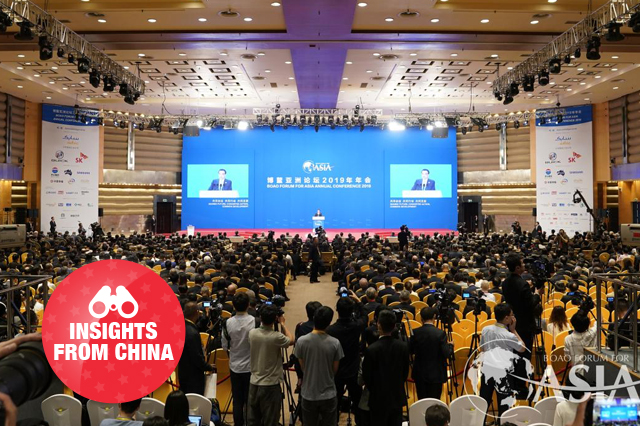
DIpil Das
In late March, the Boao Forum for Asia Annual Conference opened in the coastal town in the southern island Province of Hainan, China for which the conference is named. More than 2,000 representatives from over 60 countries attended, ranging from political and business leaders to think tank researchers.
What is the Boao Forum for Asia?
Founded in 2001, the Boao Forum for Asia is China’s answer to the World Economic Forum’s annual meeting in the Alpine town of Davos, Switzerland. The Boao Forum for Asia is a non-profit, non-government organization that hosts high-level forums for leaders from government, business and academia in Asia and other continents to share ideas on issues in Asia and the world in general.
Its board and council of advisors include former officials and business leaders from the Philippines, Japan, India, Pakistan, Saudi Arabia, Malaysia, Korea and France.
The theme of this year’s event was “Shared Future, Connected Action, Common Development,” with the main topics including an open world economy, regional cooperation, innovation-driven development and high-quality development. There were a total of 66 events, including forums and round-table talks, covering a range of topics such as trade, 5G networks, Internet of Things, and rural and urban construction.
Here are the Highlights
China’s Premier Li Keqiang presented the keynote speech titled “Jointly Tackling Challenges for Common Development” at the opening ceremony, in which he reiterated China’s plans to continue opening to the outside world, including measures such as lowering trade barriers, relaxing restrictions on foreign investment, and further linking international and domestic markets. China has recently taken steps to support this ongoing process, including a new foreign investment law to come into effect January 1, 2020.
Among the steps China will take are further relaxing controls on market access and shortening the “negative list” for foreign investment. The negative list refers to the Negative List for Market Access (2018 Version)which specifies industries in which investment, domestic or foreign, is either restricted or prohibited. This recent version of the negative list relaxed rules on foreign investment. For example, in the infrastructure sector, China will cancel equity caps for foreign investment in railway entities and power grid firms.
Boao Secretary General Li Baodong, representing the Boao Forum for Asia, signed a cooperation document with the UN Department of Economic and Social Affairs pledging to support the UN’s 17 s which focus on areas such as poverty, equality, the environment and other key social development areas. Li said the forum “will push forward cooperation on sustainable development in the region and boost the UN's efforts on sustainable development.”
Key Insights
The Boao Forum for Asia Annual Conference brought together leaders from politics, business and research to discuss issues such as free trade and technology. The event focused on China’s ongoing opening up, with Premier Li stressing the launch of a new Foreign Investment Law and a shortening of the negative list.